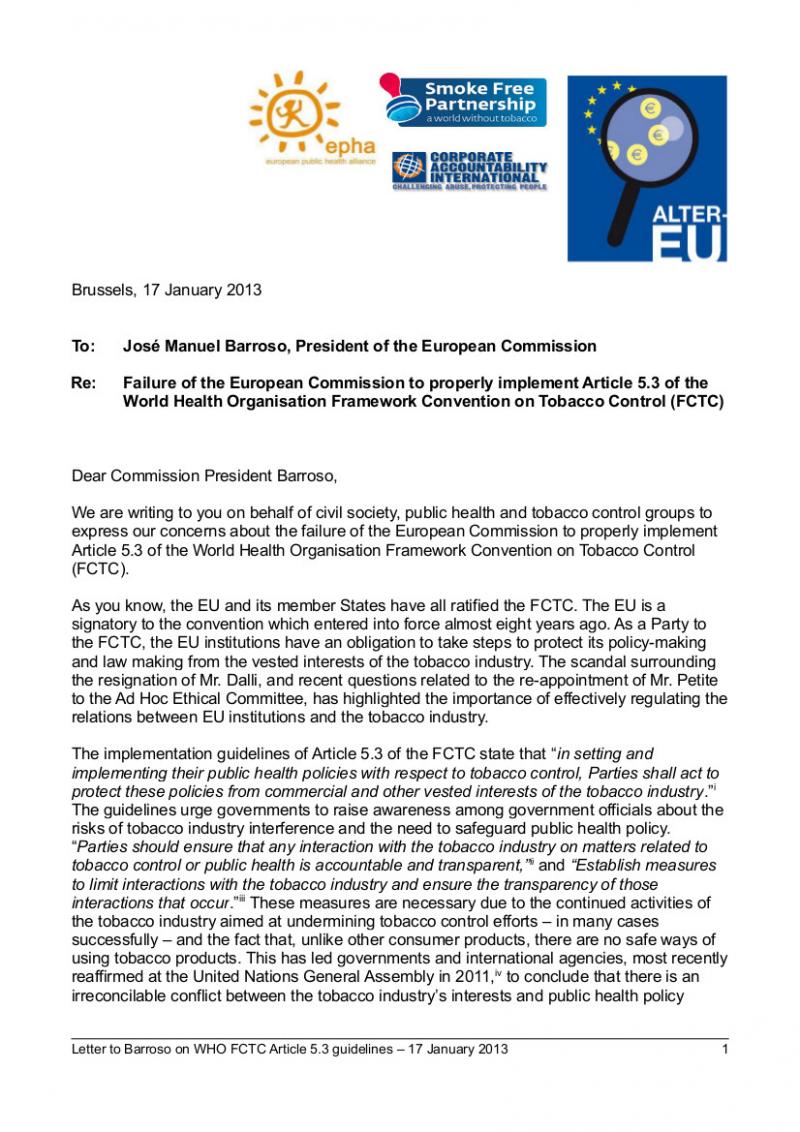
Health and transparency NGOs demand Commission implements UN tobacco lobbying rules
Transparency, public health and tobacco control NGOs have today written to EU Commission President Barroso to complain about Commission officials having undisclosed meetings with tobacco lobbyists, in violation of UN rules. The undisclosed meetings are particularly controversial in the context of the Dalligate tobacco lobbying scandal, which led to the resignation of Commissioner Dalli under unclear and contested circumstances. There is growing discontent with the Commission's handling of the case, including its refusal to answer key questions about what happened in the scandal.
The letter is a joint initiative of the Alliance for Lobby Transparency and Ethics Regulation (ALTER-EU) -CEO is a member of this coalition-, Corporate Accountability International, European Public Health Alliance (EPHA) and the Smoke-Free Partnership. The NGOs call upon Barroso to ensure that the European Commission, as a whole, properly implements Article 5.3 of the World Health Organisation Framework Convention on Tobacco Control (FCTC). This should include listing the meetings it has with tobacco industry lobbyists, and publishing the minutes of these meetings, online. Implementing the UN treaty's guidelines for interacting with tobacco industry interests also requires changes to the Code of Conduct for Commissioners, the Staff Regulations and the Transparency Register.
Beyond insisting that the Commission must implement its UN commitments for regulating contacts with tobacco lobbyists, ALTER-EU advocates a review of the Commission's rules around lobbying. Unfortunately the European Commission has so far rejected the need for better rules. Last month ALTER-EU received a very disappointing response to a letter sent to Commission President Barroso with proposals for improved transparency and ethics rules.
ALTER-EU reacted by launching an online petition to end the secrecy around “Dalligate” and improve lobbying transparency, which has so far been signed by more than 3,500 citizens from across Europe.
